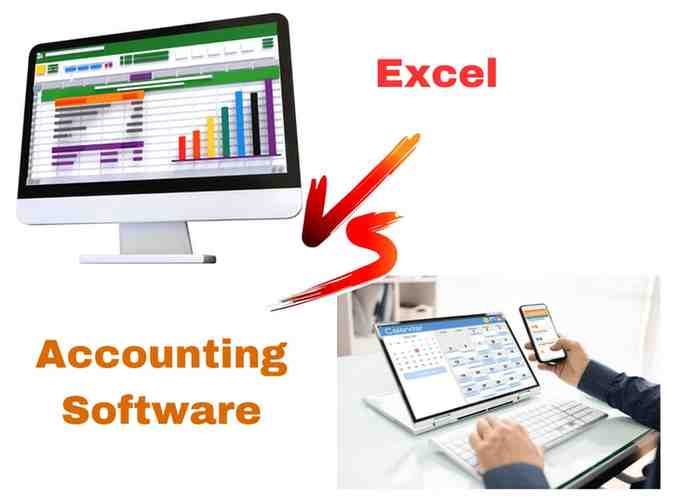
In the realm of financial management, businesses often face a crucial decision: whether to rely on Excel spreadsheets or invest in dedicated accounting software. Both options have their merits and drawbacks, and choosing the right tool can significantly impact a company’s efficiency, accuracy, and growth trajectory. In this blog, we’ll compare Excel and accounting software to help you make an informed decision for your business.
Excel: The Familiar Friend
- Pros:
- Cost-effective: Often already included in existing Microsoft Office subscriptions, making it a budget-friendly option.
- Flexibility: Highly customizable, allowing you to tailor spreadsheets to specific needs and preferences.
- Familiarity: Many users are already comfortable with Excel’s interface and basic functionalities.
- Cons:
- Time-consuming: Manual data entry and formula creation can be tedious and prone to errors, especially for complex tasks.
- Limited scalability: As your business grows and transaction volume increases, spreadsheets can become cumbersome and difficult to manage.
- Limited reporting capabilities: Creating customized reports can be complex and time-consuming. Analyzing data requires manual manipulation and interpretation.
- Security concerns: Excel files stored locally lack the robust security features often found in dedicated software.
Accounting Software: The Modern Ally
- Pros:
- Automation: Streamlines tasks like data entry and calculations, saving time and minimizing errors.
- Comprehensive features: Offers a wide range of functionalities, including invoicing, expense tracking, payroll processing, and inventory management.
- Powerful reporting and analysis: Generates pre-defined reports and provides data visualization tools for easy identification of trends and insights.
- Scalability: Designed to handle large volumes of data and adapt to your growing business needs.
- Enhanced security: Cloud-based solutions offer robust security features like user access controls and data encryption.
- Collaboration: Enables multiple users to access and work on data simultaneously, promoting teamwork and data sharing.
- Cons:
- Cost: Requires a subscription fee, which can be a barrier for some businesses, especially startups.
- Learning curve: May require some initial training to fully utilize all features, especially for those unfamiliar with accounting principles.
So, which one reigns supreme?
The answer, like most things in business, is “it depends.”
Here’s a quick guide to help you decide:
- Choose Excel if:
- You have a very small business with simple financial needs.
- You are comfortable with spreadsheets and prefer complete customization.
- You have a limited budget.
- Choose Accounting Software if:
- Your business is growing or has a moderate to large volume of transactions.
- You value efficiency and automation.
- You need advanced features like invoicing, payroll, or inventory management.
- You require robust reporting and data analysis capabilities.
- Security and collaboration are important considerations.
Making the Right Choice:
Choosing between Excel and accounting software depends on your business needs, budget, and growth objectives. While Excel may suffice for small businesses with simple financial requirements, larger enterprises or those experiencing rapid growth may benefit from the comprehensive features and automation capabilities of accounting software.
Remember, investing in the right accounting software can pay dividends in the long run, helping you take control of your finances and steer your business towards success.
accounting software vs excel excel or accounting software Excel Vs Accounting software